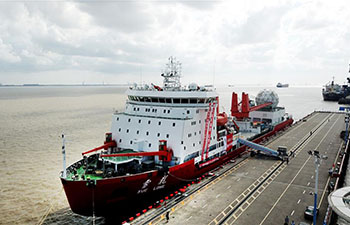by Qu Junya, Han Liang, Zheng Hangen
BEIJING, Sept. 29 (Xinhua) -- Unilateralism is doomed to fail as long as we prevent "the tragedy of the commons" from wrecking multilateral institutions and governance.
The social science term, which became widely known in the late 1960s, is concerned with choosing between self-interest and the common good. Regarding global issues, it means that broad consensus rejects the maxim of serving one's interests at the expense of the collective.
The Iran nuclear agreement reached in July 2015, which the United States quit last May, was a testament to the widespread support for multilateralism. At the ongoing 73rd session of the United Nations General Assembly (UNGA) in New York, most parties reiterated their commitment to the accord, and the European Union (EU) has worked out a legal way to continue its commercial relations with Iran by bypassing U.S. sanctions.
These moves not only safeguard the deal but defend the authority of the United Nations as well as international rules and norms.
Strong are the headwinds of unilateralism and protectionism, such as Washington's "America first" policy, bolstered by the words spoken last week by United States President Donald Trump at the UNGA: "we reject the ideology of globalism, and we embrace the doctrine of patriotism."
"Europe has proved to the world that multilateralism and sovereignty are not a contradiction in terms. On the contrary, in a world faced with immense global problems, we can only safeguard sovereignty if we work together," German Foreign Minister Heiko Maas told the UNGA in response.
In his opening address to the assembly, UN Secretary-General Antonio Guterres noted that amid global challenges from wars in Syria, Yemen and elsewhere, to the issues of refugees, climate change, and terrorism, "there is no way forward but collective, common-sense action for the common good."
While existing institutions remain pivotal to building consensus and boosting cooperation, it is also necessary to breath new life into multilateralism. One example on this front is the Belt and Road Initiative (BRI) proposed by China in 2013 to boost global growth and prosperity. The initiative has been welcomed by many. Earlier this month, Britain's All-Party Parliamentary Group for the Belt and Road Initiative and the China-Pakistan Economic Corridor were established. Furthermore, the EU and China are working together to reform the World Trade Organization.
Multilateralism is under threat while unilateralism and protectionism are gathering steam. As Guterres said when addressing world leaders last week, "We must reinvigorate our multilateral project."

















